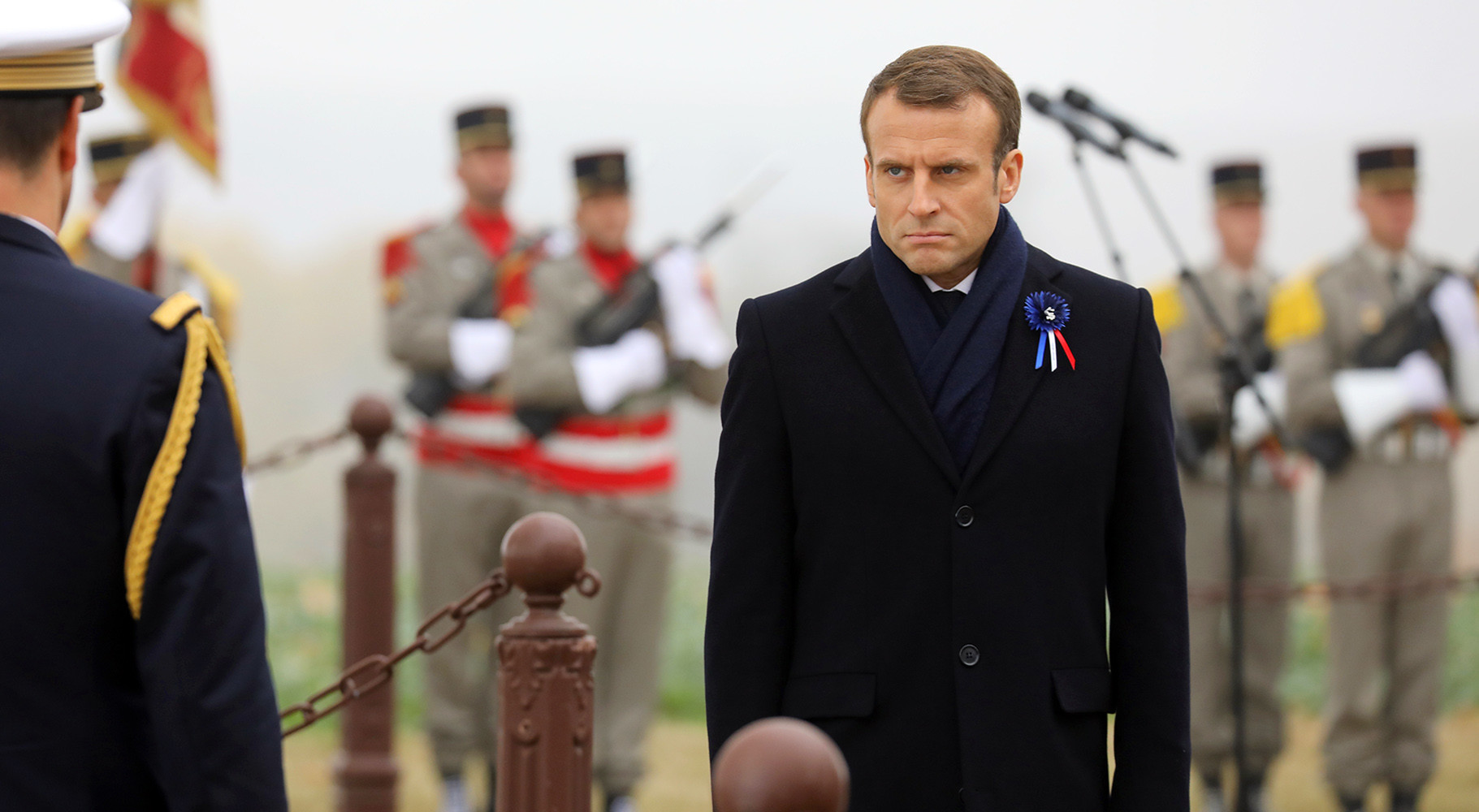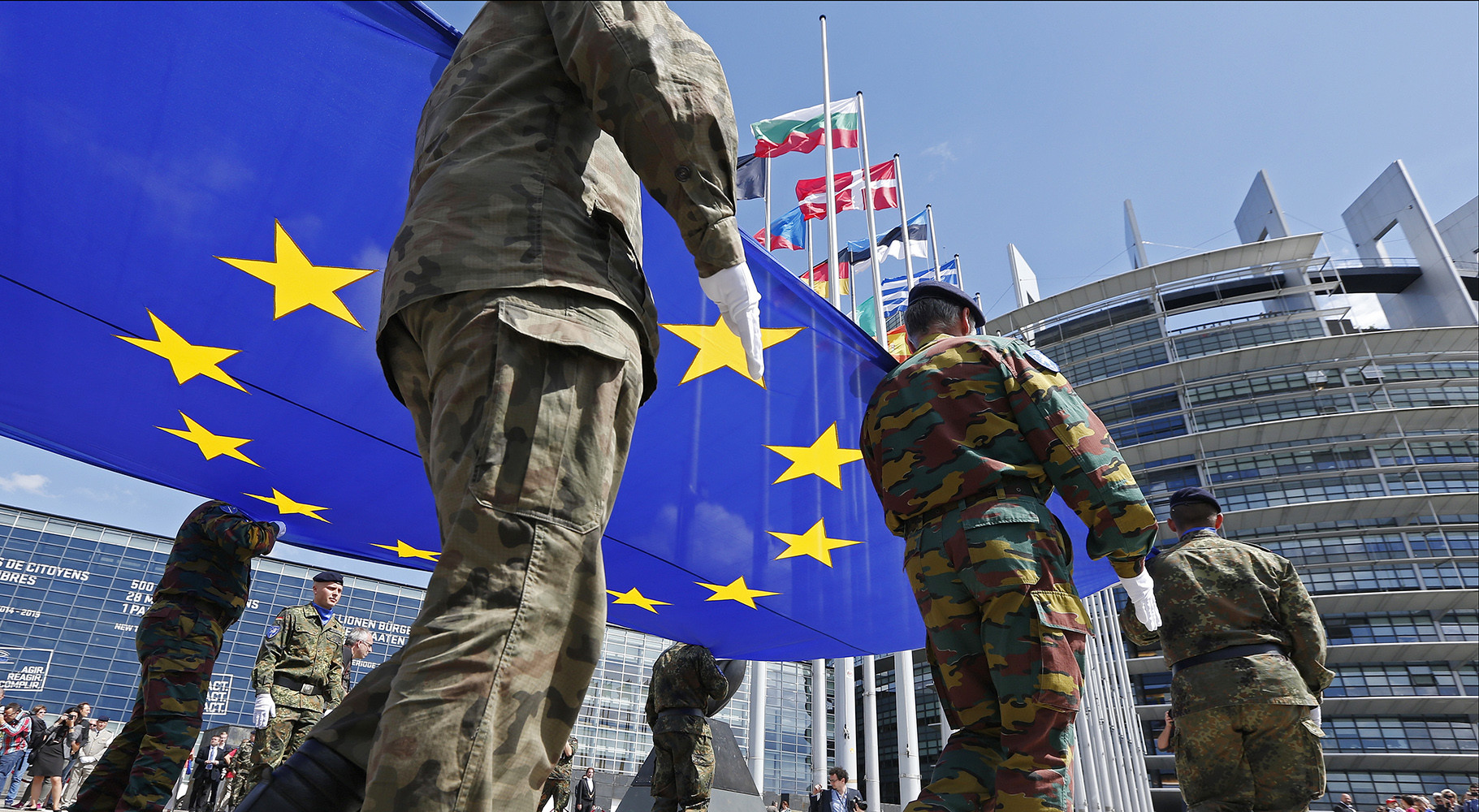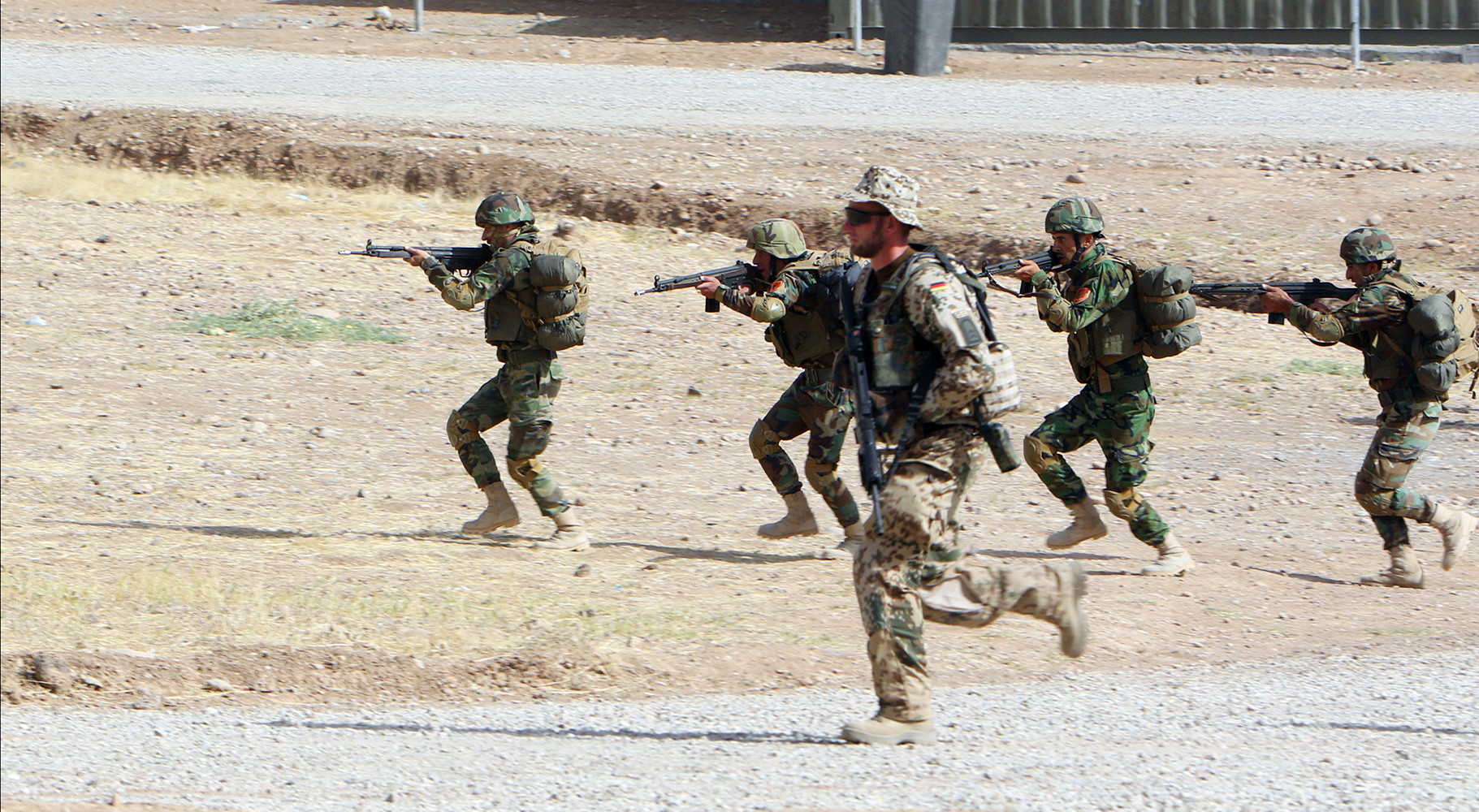On November 6, on the air of Radio Europe 1, French President Emmanuel Macron called on the countries of the continent to strengthen military integration in order to protect themselves from the growing threats. He paid special attention to the issue of cyber security. According to Macron, threats to a united Europe emanate from both Russia and China, and the United States.
“We are forced to defend ourselves against China, Russia and even the United States of America,” said the French president.
In addition, from the point of view of the French leader, the recent decision by the United States to withdraw from the Treaty on the Elimination of Intermediate-Range and Shorter-Range Missiles (DDRS) of 1987 threatens the security of Europe.
“When President Trump announced his withdrawal from an important treaty in the field of disarmament, concluded after the crisis of“ Euro-missiles ”, that broke out in Europe in the 1980s, who was the main victim? Europe and its security, ”- said Macron.
The French leader also stressed that the EU needs to create its own armed forces.
“We will not protect Europeans if we do not decide to create a real European army,” stressed Emmanuel Macron.
Commenting on the statement by Macron, the European Commission spokesman Margaritis Schinas said that the EC welcomes the position of the French leader, but it’s premature to talk about creating a unified army of European countries in the short term. Earlier, statements about the need to create a European army were made by the head of the European Commission, Jean-Claude Juncker.
USA Call
As the leading researcher at the Center for Security Studies of the Russian Academy of Sciences Konstantin Blokhin noted in an interview with RT, the French leader’s statements regarding the United States are linked to another cooling in relations between Brussels and Washington.

- French President Emmanuel Macron
- AFP
- © LUDOVIC MARIN
“Talk about creating a single European army has been going on for several decades,” noted Blokhin. “As a rule, they coincide with peaks of crises in relations between the United States and Europe.”
Now, as the expert notes, the EU is extremely excited by the US withdrawal from the INF Treaty and the prospects for deploying American medium and short-range missiles in Europe. According to him, Emmanuel Macron seeks to force the United States to make concessions, demonstrating independence.
“Now there is an attempt to get the Americans to prevent these missiles from being deployed in Europe at all,” Blokhin said. - Otherwise, Europe becomes hostage to Russian-American relations. What Macron said about the United States is connected with this. In essence, the Americans are putting up Europe, they will hide behind the backs of the Europeans. ”
According to Igor Ignatchenko, head of the department of universal history at RANEPA, the increased attention that European leaders began to pay to defense integration within the EU is due to the changing nature of relations between the United States and its European allies.
“Obviously, Macron’s camp was hoping for interaction with the US Democratic Party, which lost the presidential election, and President Trump is implementing the national-isolationist policy,” Ignatchenko said in an interview with RT. “Now, in connection with the refusal of the US military tutelage, Europe, and above all France, is initiating the creation of a unified army.”
"To play the role of leader"
This is not the first time that Macron addresses the idea of creating a single European Armed Forces. The president mentioned his plan on reforming the defense potential of the EU during his speech at the Sorbonne on September 26, 2017. Then Macron spoke in favor of creating a single EU defense budget, rapid reaction forces and even a common defense doctrine.
Macron's plans were initially greeted coolly by German Defense Minister Ursula von der Lyayen. However, in June 2018 in the interview with Frankfurter Allgemeine Sonntagszeitung they were supported by the German Chancellor Angela Merkel.
Earlier, on May 10, during the award of Emmanuel Macron with the Charlemagne Prize in Aachen, Germany, Merkel called for greater independence of the EU countries in the field of security.
“The United States will no longer simply defend us,” the German chancellor stressed. - Europe needs to take its own destiny into its own hands. This is our task for the future. ”
On 28 August, Macron once again called for the creation of a pan-European armed forces, practically repeating this statement of the German Chancellor word for word.
“Europe cannot surrender its security to the United States. We must cope with our obligations ourselves and act as guarantors of our own security, and therefore of European sovereignty, ”he said, speaking to the ambassadors of the French Republic.
As Igor Ignatchenko notes, the idea of creating a European army falls into a common collection of concepts that should give new impetus to European integration. According to the expert, the French leader claims to be the herald of those forces in Europe who are in favor of deepening the integration processes.
“Macron wants to play the role of a pan-European leader, and therefore he needs to make relevant and loud statements,” Ignatchenko believes. “Since Germany is the economic locomotive of the European Union, with which France is tough, the government wants to reserve the role of a generator of ideas and integration projects.”
At present, several defense integration formats are developing within the EU.
Since 1992, there is a "European Corps" - Eurocorps. This is a tactical compound based in Strasbourg. 10 countries take part in the work of its headquarters (France, Germany, Belgium, Luxembourg, Spain, Italy, Greece, Romania, Poland and non-EU Turkey).
However, the only really developed part is the Franco-German brigade of 5 thousand people. In addition, if necessary, the corps command may be assigned one tank division from the armed forces of Germany and France, one Spanish mechanized division and one mechanized division of the Belgian Armed Forces, as well as the reconnaissance of the Grand Duchy of Luxembourg.
- Eurocorps servicemen
- Reuters
- © Jean-Marc Loos
In 2007, it was announced the deployment of 18 EU battalion combat groups, numbering 1.5 thousand people each. In December 2017, the European Union officially launched the Program for Permanent Structured Security and Defense Cooperation (PESCO). In June, the head of the EU diplomatic department, Federica Mogherini, announced the creation of the European Defense Fund, whose funds should go to finance research projects and the acquisition of weapons.
On 25 June, at a meeting in Luxembourg, the Ministers of Defense of France, Germany, Belgium, Britain, Denmark, the Netherlands, Estonia, Spain and Portugal signed an agreement on the creation of the EU Rapid Reaction Force. It was concluded in the framework of the “European Response Initiative” launched by Emmanuel Macron.
NATO European pillar
Experts note that although the French leader is the most prominent exponent of the idea of creating a pan-European army, the German armed forces are doing a great job in this area. Their efforts are primarily focused on leading the European component of the North Atlantic Alliance.
So, back in 2013, Berlin proposed the Framework Nations Concept plan. According to him, by 2023 two divisions consisting of five armored brigades each will be created as part of the Bundeswehr - they will become the basis of the European grouping within NATO. It will also include at least the divisions of the 19 other member countries of the North Atlantic Alliance. The German military will play a leading role in this formation.
- Soldiers of the Bundeswehr
- Reuters
- © Azad Lashkari
Another option for defense integration, which the Bundeswehr is already exercising, is “patronage” over the formations of European allies. Last year, the Romanian 81st Mechanized Brigade and the Czech 4th Rapid Response Brigade were included in the German divisions. In October of this year, the Lithuanian motorized infantry brigade “Iron Wolf” was subordinated to the Bundeswehr.
“Recently, there has been increased talk of creating a single European army. This may be, if not an alternative to NATO, then the European “branch” of NATO with a consolidated position, ”said Alexander Kamkin, a leading researcher at the Center for German Studies at the Institute of Europe, RAS, in an interview with RT.
According to the expert, the main task of such efforts is to create parity within the North Atlantic Alliance between the United States and the single European bloc.
“In such a situation, the voice of Europeans would be more significant and, accordingly, more significant,” the political scientist said.
"To create something, you need to spend something"
According to Konstantin Blokhin, while the plans to create a pan-European army are rather purely theoretical. The expert noted that Europe was simply not used to spending so much money on defense and could not do without US protection.
“To create something, you need to spend something. And it is necessary to spend huge means for this European army, - the political scientist asserts. “Something tells me that the EU is unlikely to do this.”
In turn, Igor Ignatchenko notes that the plans for the construction of the pan-European armed forces can be ruined by France itself. This was already the case in the 1950s, when the French government lobbied for the creation of a European defense community. The agreement on the creation of a unified armed forces of France, Germany, Italy, Belgium, the Netherlands and Luxembourg was signed in 1952, but did not enter into force, as the French parliament refused to ratify it.
“The left parties and the greens are skeptical about the creation of a pan-European army, as they stand on the principles of pacifism and will not very enthusiastically support the idea of increasing military spending. On the other hand, the right-wing forces will oppose the creation of a European army, as they will not want to transfer military sovereignty under the authority of Brussels-based European bureaucrats, Ignatchenko notes. “The French themselves can fail this project for the second time in history.”


